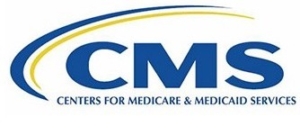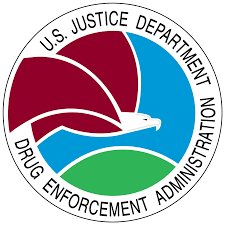Coronavirus Update: the latest information from federal regulators and others as of 3:45 p.m. on Tuesday, April 14.
Centers for Medicare & Medicaid Services
CMS has posted a new FAQ on the Families First Coronavirus Response Act and the Coronavirus Aid, Relief, and Economic Security Act (the CARES Act). Among other subjects, this FAQ addresses the emergency period described in the Families First law; the new optional Medicaid eligibility group; benefits and cost-sharing for COVID-19-related testing and diagnosis; implications for the CHIP program; implications for the basic health program; changes in federal medical assistance matching funds (FMAP) adopted under the Families First bill; circumstances under which FMAP will be 100 percent; and further information about the CARES Act.
- The Kaiser Family Foundation has published a “Medicaid emergency authority tracker” that is an interactive map identifying approved section 1135 waivers, Medicaid disaster relief state plan amendments, and section 1915 Appendix K waivers. The site also offers brief descriptions of the emergency authorizations CMS has granted.
- CMS has updated its list of the section 1135 waivers it has granted to states.
- CMS has postponed the 2019 benefit year HHS risk adjustment data validation (HHS-RADV) process to enable insurers and providers to focus on COVID-19-related activities.
- CMS has advised state survey agency directors about new, temporary flexibility in the transfer or discharge of skilled nursing facility or nursing facility patients for COVID-19-related reasons. In general, if two or more certified long-term-care facilities want to transfer or discharge residents between themselves for the purpose of cohorting, based on their COVID-19 status, they do not need any additional approval to do so. This same flexibility does not apply if one of the two facilities in such transfers is not certified.
Department of Health and Human Services
- HHS is issuing an amendment to its declaration under the public readiness and emergency preparedness act for medical counter-measures against COVID-19 to extend liability immunity for activities related to medical counter-measures against COVID-19 authorized under the Coronavirus Aid, Relief, and Economic Security Act (the CARES Act).
- HHS has announced that it will collaborate with multiple non-government organizations on the development of convalescent plasma and hyperimmune globulin immunotherapies that would use antibodies from COVID-19 survivors to treat COVID-19 patients.
Drug Enforcement Administration
The DEA has published a letter that grants to the satellite hospitals and clinics of DEA-registered hospitals, under certain conditions, the flexibility to receive and administer certain controlled substances. The DEA also is permitting the distributors of controlled substances to deliver them directly to such facilities.
- The DEA is granting a temporary exception to the requirement that only licensed practitioners may sign for the delivery of narcotics at narcotic treatment programs to permit an alternative authorized individual to sign for such deliveries if certain conditions are met.
- Under current law, the quantity of controlled substances that registered dispensers of such substances may distribute to other practitioners may not exceed five percent of the total number of dosage units of all controlled substances those individual dispensers distribute in a year. The DEA is now waiving this so-called five percent rule for the duration of the COVID-19 emergency while retaining other distribution-related requirements.
Occupational Safety and Health Administration
- OSHA has published its interim enforcement response plan providing instructions and guidance to OSHA staff for handling COVID-19-related complaints, referrals, and severe illness reports.
Food and Drug Administration
- The FDA has issued an emergency use authorization (EUA) for a specific commercial infusion pump that, when connected to a nebulizer for tracheal delivery of nebulized medications, allows for prolonged treatment with these medications without additional risks for patients.
American Medical Association
- The AMA has established two new CPT codes for reporting COVID-19 antibody testing and developed guidance on their use.
Federal Funding Opportunities for Hospitals
NASH has prepared a document that collects and presents in one place the various new federal funding opportunities for hospitals resulting from legislation addressing the COVID-19 public health emergency. Find that document here.
(To receive this daily update directly, sign up for our mailing list at info@safetynetalliance.org.)

 CMS has posted a
CMS has posted a  The DEA has published a letter that grants to the satellite hospitals and clinics of DEA-registered hospitals, under certain conditions, the
The DEA has published a letter that grants to the satellite hospitals and clinics of DEA-registered hospitals, under certain conditions, the 